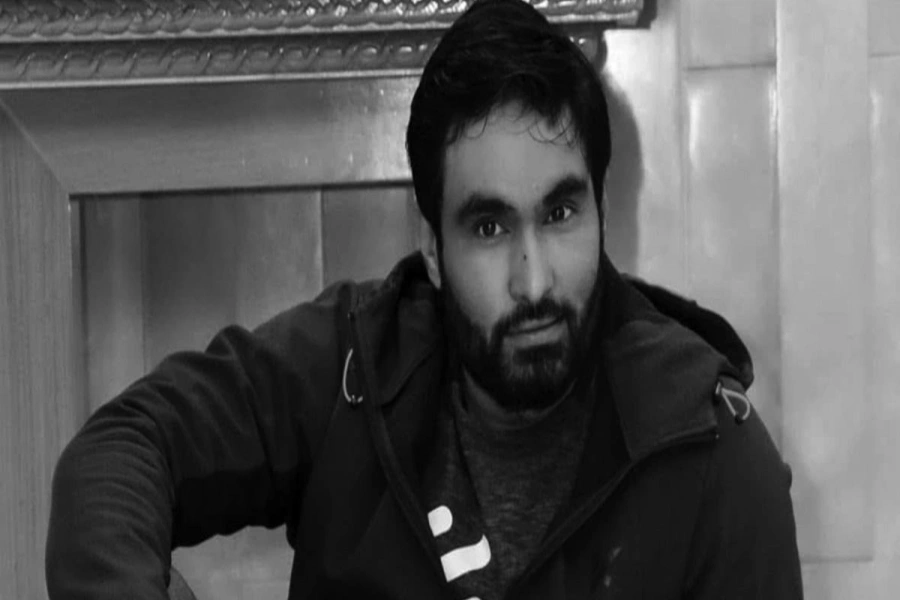KATHMANDU, Sept 27: Top leaders of major political parties including former Maoist rebel chief Pushpa Kamal Dahal on Thursday spoke of renewed commitment to domestically settling conflict-era cases at the earliest in accordance with established justice delivery processes.
They took responsibility for the delay in resolving the conflict-era cases and vowed to expedite matters immediately. In a first-ever interaction held in the presence of top politicians involved in the Maoist insurgency, conflict victims and other stakeholders said both the commissions responsible for resolving the cases will be reconstituted and the law will be revised. The interaction was assembled by the National Human Rights Commission (NHRC).
Once the commissions are reconstituted and the laws revised after taking the conflict victims on board, the transitional justice process will move ahead in accordance with international norms and court rulings, the political leaders said in the presence of hundreds of conflict victims gathered at the Nepal Academy hall.
“As supreme commander of the people's war and one of the signatories of the peace deal I took all political, moral and practical responsibility for all the bad and good of the war. Also, I'm ready to face prosecution in a court of international law if I have made any mistake,” said Dahal adding, “I hope there won't be injustice against me."
While signing the Comprehensive Peace Accord in 2007, the signatories promised to settle the conflict-era cases within six months. The conflict victims, however, are still waiting for justice.
Established in February 2015, two TJ commissions – Truth and Reconciliation Commission and Commission of Investigation on Enforced Disappeared Persons – were mandated to complete their investigations into conflict-era cases and ensure justice for the victims, all within two years. The government subsequently extended the deadlines for these bodies by two years.
Newly-built settlement for Musahars in Itahari unoccupied for t...

The commissions failed to settle even a single case despite repeated term extensions and they were both dissolved in April this year.
Altogether 65,000 cases have been filed at the TRC. Of these, the TRC has concluded preliminary investigations into about 3,000 cases whereas the CIEDP has nearly completed its investigations into a total of 3,197 complaints filed there.
At the interaction, the political leaders didn't blame the commissions for failure to settle the cases. Instead, they said the intention of the political parties to implicate one another for political advantage was the major reason behind the failure.
“We ourselves are responsible,” elaborated Dahal adding, “We tried to dominate or expose each other while forming the commissions and registering cases there.”
The NHRC has assembled all the stakeholders together at a time when frustration among conflict victims is reaching boiling point. At the interaction, the conflict victims vented their anger against the politicians.
“You forged an electoral alliance with Sher Bahadur Deuba to remain in power, you merged our party into the one led by KP Oli to form a new party,” said Bhawana Bidrohi, a former Maoist cadre who was tortured by security personnel during the armed conflict. Pointing to Dahal, she said “Yet, we didn't complain about you. Nor did we ask for a job for my husband or a relative. We are just begging for justice.”
Bidrohi, who addressed Dahal as Prachanda Buwa, said “If justice is delayed we are ready to explode like a suicide bomb.”
The conflict victims came down heavily on Nepali Congress President Sher Bahadur Deuba, when he walked out of the program venue shortly after committing to resolve the conflict-era cases soon.
“Why did you come here if you cannot hear us out?” asked Sushila Chaudhari, one of the conflict victims.
Another victim screamed, “Can't you spare just five minutes to listen our woes?”
As tensions ran high in the hall, the organizers and others attending tried to calm things down, giving the irked conflict victims the podium to voice their anger.
Later, NC leader Minendra Rijal, speaking for Deuba, said Deuba had left the venue as per an understanding reached with the organizers and asked conflict victims not to make this an issue.
“Both the commissioners appointment and law revision processes will go ahead simultaneously,” said Rijal, “We will do it all in your presence and leave no room for any international organization to question on our TJ process.”
Pointing out that the former rebels and the then CPN-UML, which was taking a tough stance on the TJ process in the past, have merged to form a new party, Rijal said the situation has changed.
“Those who committed mistakes in the war will have to apologize whereas the ones involved in serious human rights violations will face prosecution,” said NCP leader Madhav Nepal.



































